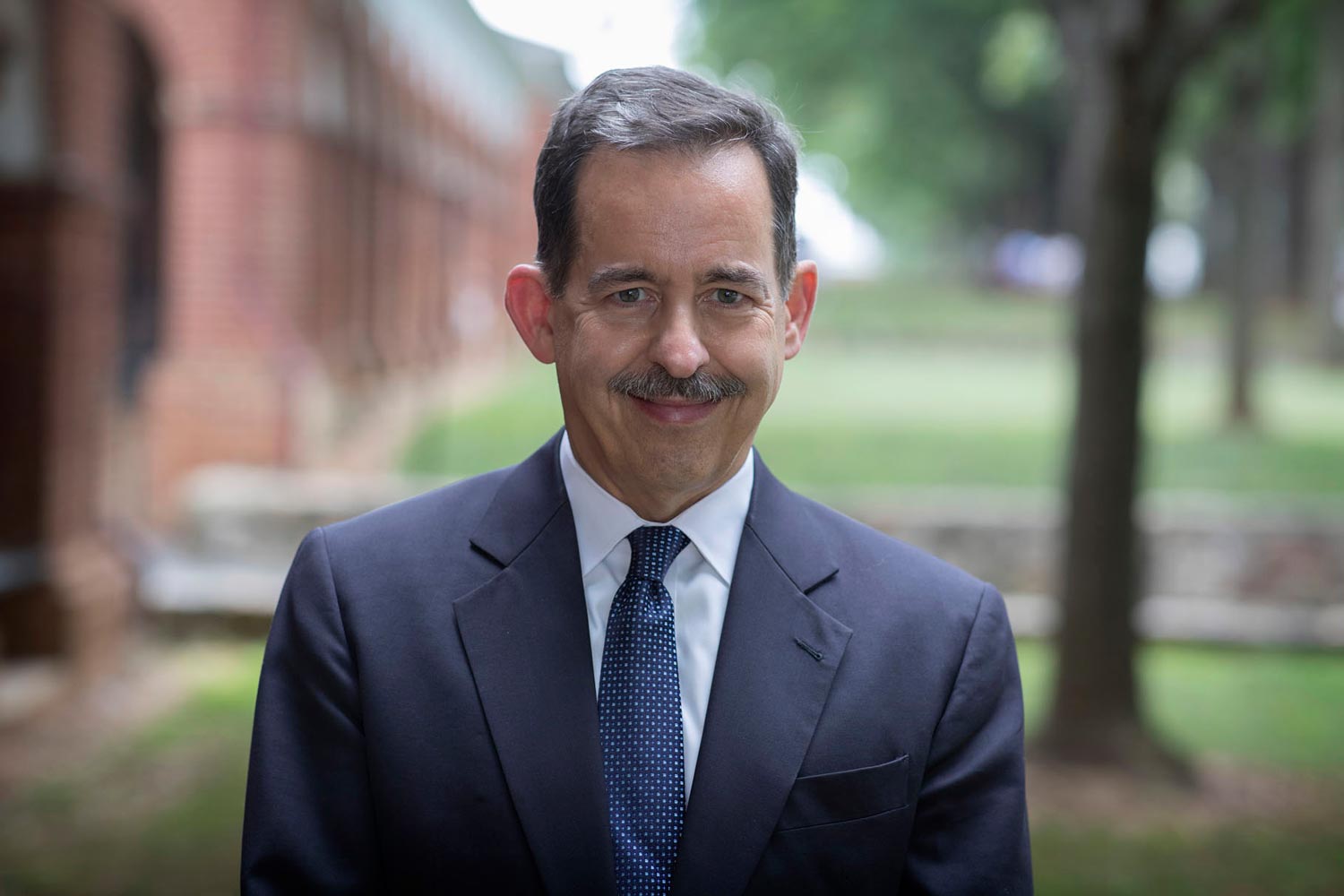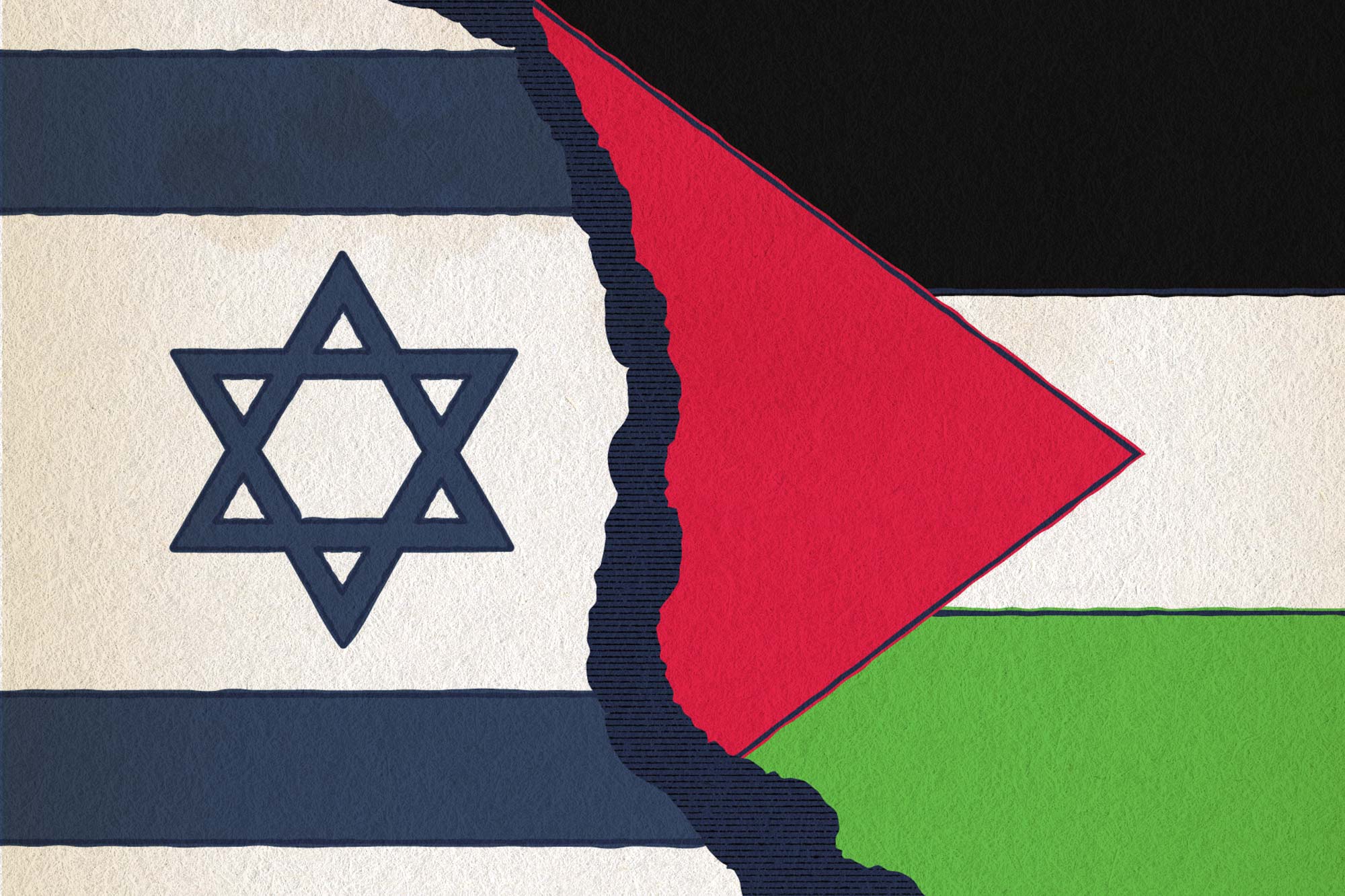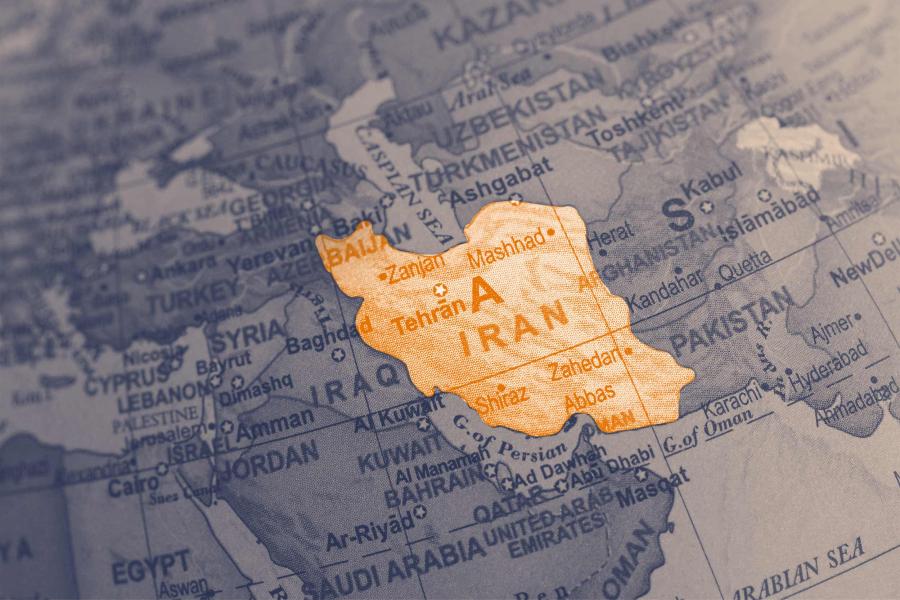The world woke up to news Saturday morning that the Palestinian militant group, Hamas, had attacked Israel from the Gaza Strip by air, land and sea.
The sides remain at war, with Israel vowing a “complete siege” of Gaza. More than 1,000 have been killed on both sides, and the death toll continues to climb with no end to fighting in sight.
Closer to home, University of Virginia officials have been working diligently to offer support to UVA community members affected by the nascent war.
“President Jim Ryan and the University leadership team are focused on the crisis in Israel and Gaza, particularly with a view to making sure that University personnel are not in immediate danger and ensuring that members of our community with family and friends in the region have necessary support during this difficult time,” Stephen Mull, UVA’s vice provost for global affairs, said.

“At the time of the outbreak of violence, we had one UVA student studying in Jerusalem. We made contact with the student to verify their safety and are pleased to report that they have now safely evacuated from Israel,” Mull said. “We also had a student en route to Israel for an exchange program whom we contacted and who agreed to defer travel there.”
Mull said the University’s insurance carrier for security services to international travelers is unable to provide any support to travelers headed to Israel. “The University has consequently prohibited all University-related travel to either Israel or Gaza until further notice,” Mull said.
Within a few hours of the attacks, UVA leaders were in touch with the University’s registered international students from the region to offer assistance in coping with stress and any academic challenges they may be facing in connection with the outbreak of violence.
Mull said leadership is also encouraging faculty and staff members facing difficulties during this crisis to contact their supervisors and/or the Faculty and Employee Assistance Program to assist them with any issues.
Mull is a seasoned U.S. diplomat, having served in a broad range of U.S. national security positions, most recently as acting undersecretary for political affairs at the U.S. Department of State. From 2012 to 2015, he was the U.S. ambassador to Poland. From 2003 to 2006, he was the U.S. ambassador to Lithuania.
UVA Today turned to the expert for some answers to the violence raging in Israel and Gaza.
Q. What do you make of the timing of Saturday’s attack?
A. The attacks came on almost exactly the 50-year anniversary of Egypt’s and Syria’s combined surprise attack on Israel in October 1973 in the “Yom Kippur War,” which sent the U.S. military on its highest-ever nuclear alert. Given the resonance of such anniversaries in the region and the extensive amount of planning that must have gone into these brutally sophisticated and unprecedented attacks, it seems likely that this timing was not accidental.
The current political and diplomatic context is perhaps even more significant. Israel has been in the grip of a wave of political polarization unseen in its 75-year history over Benjamin Netanyahu’s governmental plans to reduce judicial independence, which has even prompted public opposition from the country’s normally apolitical security and intelligence apparatus, and its abandonment of a so-called “two-state solution” with the Palestinians while expanding settlement activities on the occupied West Bank.
Hamas and other Israeli enemies may have been expecting that the Israeli government was distracted by these internal political divisions and thus more vulnerable to a surprise attack of this nature.
Q. Are there other diplomatic considerations at play?
A. There is good reason to suspect that Hamas and its supporters saw these attacks as a means of blocking Israel’s recent – and growing – rapprochement with Arab states such as the United Arab Emirates, Bahrain and Morocco. In recent months, there has been a spike in speculation that Saudi Arabia is on the brink of following suit by establishing diplomatic relations with Israel in exchange for new security guarantees from, and civil-nuclear cooperation with, the United States.
Opponents of this warming trend have grown increasingly critical that participating Arab states are ignoring or abandoning Palestinian interests while pursuing more rewarding economic relations with Israel.
Iran, which has supported Hamas and other Palestinian groups and funded terrorist operations throughout the region, also views Israel’s growing integration with the Arab world as unfavorable to its interests in the region’s balance of power.
Regardless of whether this issue was a conscious motive in launching the Hamas invasion, it is already clear that any further diplomatic warming with Israel in the region is probably on hold for now.
Q. Can you put this in context with preceding conflicts between Hamas and Israel?
A. There has been a long-running conflict between Hamas and Israel since the former’s founding in 1987 and which intensified with Hamas’ effective takeover of Gaza in self-governing elections in 2006. Israel has responded with military action to periodic waves of missile and terrorist attacks from Gaza into Israeli territory, most notably in major bombing campaigns in 2008, 2009 and again in 2014.
Tensions began rising again between the two earlier this year when Hamas expanded its operations from Gaza to southern Lebanon, from where it launched a heavy barrage of missiles into northern Israel, prompting an Israeli attack on southern Lebanon.
Q. How is this different from previous conflicts?
A. There are two important differences in this week’s war.
One is the massive scope of the Hamas attack, featuring thousands of missiles that effectively compromised Israel’s sophisticated “Iron Dome” missile defense system, Hamas’ use of paragliders and drones, and an overwhelming movement of armed Hamas fighters flooding into civilian areas of southern Israel, have combined to produce the single largest Israeli toll of more than 900 dead, including nine known Americans, and 2,600 wounded since the conflict began. Hamas’ massive seizure of hostages, numbering over 100, is also unprecedented.
The other difference is the evident success of the attack in surprising Israeli security and intelligence services, which have generally been regarded among the most skilled in the world. There will doubtless be deep inquiries within Israel in the months ahead into how and why this happened.
Q. What are your immediate expert observations on the situation?
A. Whatever political divisions might have existed within Israel before these attacks happened, it’s a safe bet that the nation will pull together in supporting a swift, decisive and overwhelming response against Hamas and Gaza. While that is understandable and to be expected, this Israeli military’s threat today to impose a “total siege” on Gaza potentially depriving it of food, water, electricity and fuel, while continuing to run bombing raids of the territory, threatens to unleash a major humanitarian catastrophe among Gaza’s 2.5 million residents. How Israel manages to conduct its rightful self-defense without further radicalizing the Gaza community will be a critical factor in how this conflict plays out.
Q. Do you see this growing into a larger, regional conflict?
A. This is another very serious risk of the conflict, as Hezbollah, a militant group operating out of Lebanon (with Iranian support), will be eager to capitalize on any Israeli setbacks in the conflict. The U.S. has moved to deter any expansion of the conflict by moving an aircraft carrier strike group off the coast of Israel in the eastern Mediterranean Sea and communicated its willingness to support Israel’s defense if required.
While Arab states will be reluctant to openly oppose the Palestinians in this conflict, there may be space for some creative diplomacy involving long-time U.S. partners like Egypt and Jordan and the Gulf Arab states in bringing about a cease-fire.
Media Contact
University News Senior Associate Office of University Communications
jak4g@virginia.edu (434) 243-9935
Article Information
July 5, 2025






